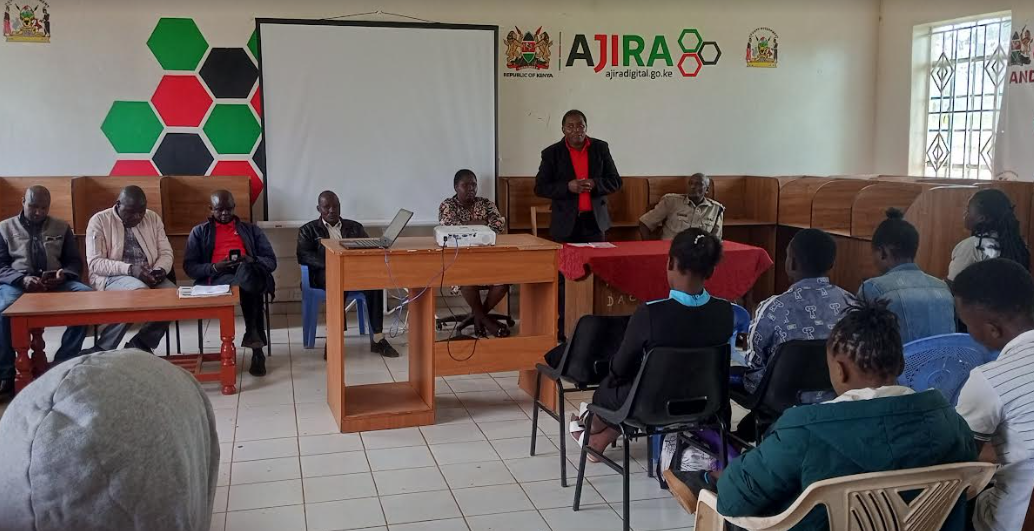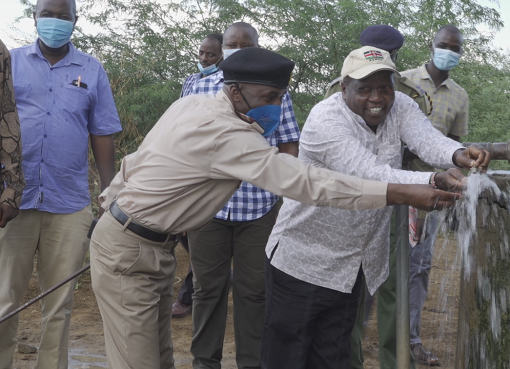Youth in West Pokot County have been urged to explore technology and use film to expose the negative effects of female genital mutilation and banditry that have dragged behind development in the area.
Addressing upcoming artists and content creators in the region at Makutano Youth Empowerment Centre in Kapenguria on Friday, Kenya Film Classification Board (KFCB) North Rift Regional Manager Mr. Bonaventure Kioko said the use of films on the negative effects of banditry and female genital mutilation can attract a lot of audiences since the country and the world at large was keen on eradicating the vices.
“I am delighted to learn that this county’s vision is “The County of Hidden Treasures,” and therefore it sets the stage for showing up the hidden gems through art,” said the KFCB manager.
He noted that many people know very little about the county, making the fight against common vices such as banditry, FGM, and early marriages elusive.
He said youth in the county can be the best agents of change and fight against retrogressive cultural practices.
The manager highlighted that the government was committed to promoting youth talents in the country, adding that youth are the greatest future investment.
At the same time, KFCB has appealed to the youth to use their smartphones and social media platforms to promote development.
“Smartphones are great resources that youth can use to empower themselves, and talent is the best way to earn wealth free of corruption,” noted Kioko.
He urged youth to avoid cybercrime, which will lead to heavy penalties if found culpable. Kioko urged the youth to form and work in groups since the government has plans for such organised groups. He said acting in books is also an opportunity for youth to make good use of their talents to make money.
“I started acting when I was in high school and made some good money from it,” he disclosed.
Kioko encouraged the youth to change their way of life and join the creative economy, noting that the creative economy is one of the drivers of the country’s economic growth and also personal development.
“We are aware that a number of youths have joined cattle rustling activities, and others have been occasioned by early marriages, FGM, and other vices that drive society backwards,” he regretted.
He went on: “We encourage the youth to join the creative economy so that they can help build the country through the creative economy.”
He said youths need to change from the bad practices they have been accustomed to for a better future in society.
“Youths should change the narrative that cattle rustling, early marriage, and FGM are ways of life. These issues can be best addressed through creative work and meaningful content creation,” he reiterated.
Kioko said if youth do creative work that advocates for the change of vices in the community to good norms in the society, then the society will be good and the thinking of the society will change to beneficial activities.
He said the department of film services has good opportunities for youth on how they can create their own content and also market their content to generate money for themselves.
The upcoming content creators, for their part, lamented over the lack of recording studios in the region, thus discouraging many talented youths from engaging in the film industry.
Cynthia Soita, an actress in the region, said there was a lot of potential among the youth in the region, but they lacked exposure to pursue their talents.
She called on the government to organise more trainings and exposure workshops to help tap the talents.
Cythia regretted that there were no theatre acting groups in the region to even act out literature-set books, which can earn many youth decent incomes.
By Richard Muhambe and Anthony Melly




